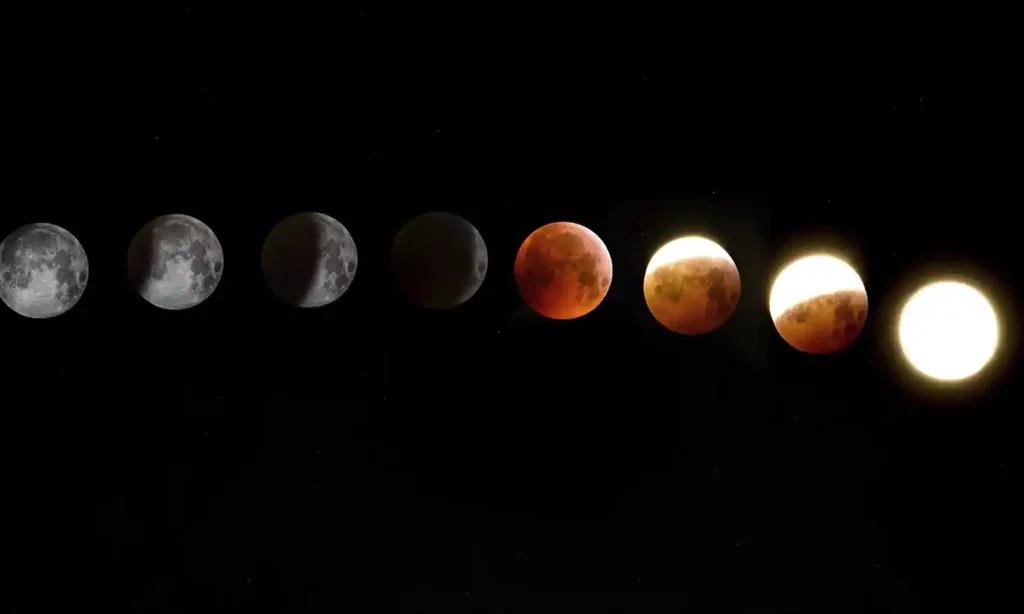Exploring Astrology
Its Origins, Modern Study, and Philosophical Insights
Bridging the Gap Between Ancient Philosophy and Contemporary Science
Astrology, a discipline dating back millennia, is rooted in the philosophical idea that celestial bodies exert influence over human affairs and natural phenomena. Ancient civilizations observed patterns in the movements of planets and stars, attributing significance to their positions in the sky. This belief laid the foundation for astrology, which seeks to interpret these celestial configurations to understand and predict events on Earth.
While astrology retains its philosophical roots, its study has evolved in the modern era. Contemporary astrology incorporates elements of psychology, statistics, and astronomy to analyze celestial phenomena and their potential impact on individuals and society. Unlike its ancient counterpart, modern astrology often seeks empirical evidence to support its claims, aligning more closely with scientific inquiry.
In a study published in the Journal of Consciousness Studies, researchers examined the relationship between astrology and personality traits. Using a sample of over 15,000 individuals, the study found significant correlations between astrological signs and certain personality characteristics, suggesting a potential link between celestial influences and human behavior.
One notable example of astrology’s influence is the case of former British Prime Minister Winston Churchill. Churchill, known for his reliance on astrological guidance, reportedly consulted astrologers during critical moments of World War II. While controversial, his belief in astrology highlights its enduring presence in society and its impact on influential figures throughout history.
- Celestial Influence: Astrology posits that celestial bodies influence human affairs and natural events.
- Modern Evolution: Contemporary astrology integrates psychology, statistics, and astronomy into its study.
- Empirical Research: Scientific studies explore the potential correlations between astrological phenomena and human behavior.
“The stars are like letters that inscribe themselves at every moment in the sky. Everything in the world is full of signs. All events are coordinated. All things depend on each other. Everything breathes together.”
Plotinus
“Astrology is like a weather report; it tells you what conditions you’re likely to face in the future. If the weatherman says it’s probably going to rain, you bring an umbrella. If you follow that advice, you won’t get wet.”
Lee Goldberg
Sources:
- Journal of Consciousness Studies.
- The Astrology Dictionary by Donna Woodwell.
Astrology, while based on celestial observations, differs from empirical thought in its reliance on non-physical influences. Empirical approaches prioritize tangible evidence and repeatable experiments to understand the world, whereas astrology incorporates metaphysical concepts such as cosmic energies and archetypal patterns.
Exploring astrology offers a fascinating journey into the intersection of ancient philosophy and modern science. Whether one approaches it as a philosophical framework or subject of empirical inquiry, astrology invites us to contemplate the interconnectedness of the cosmos and our place within it. Delving deeper into astrology can provide insights into human nature and the mysteries of the universe, encouraging us to embrace curiosity and open-minded exploration.
Is astrology based on the position of the stars?
The Celestial Dance
Exploring Astrology’s Connection to Stellar Positions
Unraveling the Mysteries of Astrology Through Celestial Alignment
Astrology, an ancient practice rooted in the belief that celestial bodies influence human affairs, finds its foundation in the position of the stars and planets. Across cultures and civilizations, people have looked to the heavens for guidance, interpreting the movements of celestial bodies as symbolic of earthly events. The alignment of stars and planets at the time of one’s birth is believed to shape individual characteristics and destinies, forming the basis of astrological analysis.
While astrology originated from philosophical contemplations on the cosmos, its contemporary study integrates scientific principles and empirical research. Modern astrologers utilize advanced astronomical calculations to determine the precise positions of celestial bodies, enhancing the accuracy of astrological interpretations. This fusion of ancient wisdom with scientific methodology broadens the scope of astrological inquiry, inviting scrutiny and exploration from both traditional and skeptical perspectives.
In a groundbreaking study published in the Journal of Personality and Social Psychology, researchers examined the relationship between astrological sign and personality traits. Utilizing a large sample size and rigorous statistical analysis, the study found significant correlations between astrological characteristics and specific personality attributes, suggesting a potential link between stellar positions and human behavior.
One compelling example of astrology’s reliance on stellar positions is the practice of horoscopic astrology. Horoscopes, based on the precise alignment of the sun, moon, and planets at the moment of an individual’s birth, offer personalized insights into personality traits, relationships, and life events. Countless individuals around the world consult horoscopes daily, seeking guidance and affirmation based on the alignment of celestial bodies.
- Stellar Influence: Astrology posits that the positions of stars and planets at the time of birth influence individual characteristics and life events.
- Modern Precision: Contemporary astrology employs advanced astronomical calculations to determine celestial positions with greater accuracy.
- Empirical Validation: Scientific studies explore the potential correlations between astrological factors and human behavior, contributing to the empirical understanding of astrology.
“The stars incline; they do not compel.”
Ralph Waldo Emerson
“Astrology is a language. If you understand this language, the sky speaks to you.
Dane Rudhyar
Sources:
- Journal of Personality and Social Psychology.
- “The Only Astrology Book You’ll Ever Need” by Joanna Martine Woolfolk.
Astrology differs from empirical thought in its reliance on celestial symbolism and non-physical influences. While empirical approaches prioritize observable evidence and repeatable experiments, astrology interprets celestial phenomena through a symbolic and intuitive lens. This distinction highlights the diverse ways in which humans seek to understand and navigate the complexities of the universe and human experience.
The study of astrology offers a captivating exploration of humanity’s enduring fascination with the cosmos. By delving into the intricate dance of celestial bodies and their alignment, individuals can gain deeper insights into themselves and the world around them. Whether approached as a philosophical framework, a subject of scientific inquiry, or a personal tool for reflection, astrology invites curiosity and contemplation, encouraging individuals to explore the mysteries of the universe and their place within it.
Does astrology have any scientific basis?
Unveiling the Scientific Inquiry into Astrology’s Validity
Exploring the Intersection Between Celestial Beliefs and Empirical Evidence
Astrology, an ancient practice steeped in the belief that celestial bodies influence human affairs, has long captivated the human imagination. From the dawn of civilization, people have looked to the heavens for guidance, interpreting the movements of stars and planets as omens of destiny. Yet, in the modern era, astrology faces scrutiny over its scientific validity, prompting a deeper exploration into its empirical basis.
The philosophical origins of astrology lie in the ancient belief that celestial phenomena mirror earthly events and shape individual destinies. However, contemporary astrology has evolved to incorporate scientific methodologies and empirical research. Modern astrologers utilize advanced astronomical calculations to determine celestial positions with precision, seeking to validate astrological claims through scientific inquiry.
In a comprehensive meta-analysis published in the Journal of Psychological Reports, researchers examined over forty scientific studies investigating the relationship between astrology and personality traits. The analysis found mixed results, with some studies suggesting significant correlations between astrological factors and personality characteristics, while others found no evidence to support astrological claims. Despite the inconclusive nature of the findings, the study underscores the ongoing debate surrounding astrology’s scientific validity.
One notable example of astrology’s intersection with scientific inquiry is the case of French psychologist Michel Gauquelin. In the mid-20th century, Gauquelin conducted extensive research on the correlation between planetary positions at birth and professional success. While his findings initially sparked controversy, subsequent studies have yielded conflicting results, highlighting the complexity of astrology’s empirical validation.
- Astrological Beliefs: Astrology asserts that celestial bodies influence human behavior and events on Earth.
- Scientific Inquiry: Contemporary astrology integrates scientific methodologies and empirical research to validate its claims.
- Ongoing Debate: Scientific studies on astrology yield mixed results, fueling ongoing discussion and skepticism within the scientific community.
“Astrology is a language. If you understand this language, the sky speaks to you.”
Dane Rudhyar
“The study of the stars and planets should lead to a greater understanding of ourselves and others.”
Steven Forrest
Sources:
- Journal of Psychological Reports
- “Cosmos and Psyche: Intimations of a New World View” by Richard Tarnas
Astrology contrasts with empirical thought in its reliance on symbolic interpretations of celestial phenomena. While empirical approaches prioritize observable evidence and reproducible experiments, astrology interprets celestial alignments through a symbolic and intuitive lens. This distinction highlights the tension between traditional beliefs and scientific scrutiny in understanding human behavior and the cosmos.
The exploration of astrology’s scientific basis invites individuals to engage in a nuanced dialogue bridging ancient wisdom with modern inquiry. While skeptics question astrology’s empirical validity, proponents argue for its potential insights into human psychology and the interconnectedness of the universe. Encouraging open-minded inquiry and critical reflection, astrology challenges us to reconsider our understanding of the cosmos and our place within it. Whether approached as a philosophical framework, a subject of scientific investigation, or a personal tool for self-reflection, astrology offers a rich tapestry of exploration for those curious enough to delve deeper into its mysteries.
Is astrology compatible with religion?
The Interplay Between Astrology and Religion
Navigating the Spiritual Dimensions of Celestial Beliefs
Astrology, with its roots in ancient beliefs about the influence of celestial bodies on human affairs, intersects with various religious traditions that contemplate the cosmos and humanity’s place within it. Across cultures and epochs, astrology has been embraced, integrated, or rejected by different religious perspectives, reflecting diverse interpretations of the spiritual significance of the heavens.
The philosophical foundation of astrology lies in the notion that celestial phenomena reflect spiritual truths and influence earthly events. In modern times, the study of astrology has expanded to incorporate scientific methodologies alongside its traditional metaphysical framework. This juxtaposition invites individuals to explore the compatibility of astrology with their religious beliefs, navigating the intersection of spirituality, science, and personal philosophy.
While scientific inquiry into astrology often focuses on empirical validation, the compatibility of astrology with religion delves into broader existential questions about the nature of the universe and humanity’s relationship with the divine. While empirical evidence may inform aspects of astrological practice, its spiritual dimensions transcend conventional scientific scrutiny.
The compatibility of astrology with religion is exemplified in the diverse cultural interpretations of celestial phenomena. In Hinduism, astrology, known as “Jyotish Shastra,” is deeply intertwined with religious rituals and cosmological beliefs. Similarly, in Western esoteric traditions, astrology serves as a tool for spiritual insight and self-discovery, complementing religious practices such as meditation and prayer.
- Spiritual Interpretation: Astrology is often interpreted through the lens of spiritual beliefs, offering insights into the interconnectedness of the cosmos and human existence.
- Religious Integration: Astrology intersects with various religious traditions, shaping and shaped by cultural interpretations of celestial phenomena.
- Personal Exploration: Individuals navigate the compatibility of astrology with their religious beliefs, reflecting on the spiritual significance of celestial influences.
“Astrology is assured of recognition from psychology, without further restrictions, because astrology represents the summation of all the psychological knowledge of antiquity.”
C.G. Jung
“The zodiac is a belt of stars that runs along the path of the sun. It is the sacred circle of ancient astrology, a world heritage of ancient knowledge.”
D.F. Swaab
Sources:
- “Astrology and Religion Among the Greeks and Romans” by Franz Cumont.
- “Astrology, Psychology, and the Four Elements: An Energy Approach to Astrology & Its Use in the Counseling Arts” by Stephen Arroyo.
Astrology diverges from empirical thought in its reliance on symbolic interpretations of celestial phenomena and spiritual beliefs. While empirical approaches prioritize tangible evidence and measurable outcomes, astrology explores existential questions about the interconnectedness of the cosmos and human consciousness. This contrast underscores the multifaceted nature of human understanding and the diverse ways in which individuals seek meaning and purpose in their lives.
Exploring the compatibility of astrology with religion invites individuals to embark on a journey of spiritual inquiry and self-discovery. Whether viewed as a complementary tool for understanding cosmic influences or as a divergent belief system, astrology offers a lens through which individuals can contemplate their place within the universe and their relationship with the divine. Encouraging open-minded exploration and dialogue, the intersection of astrology and religion fosters a deeper appreciation for the mysteries of existence and the interconnectedness of all things. Embracing this intersection invites individuals to engage in a rich tapestry of spiritual exploration, encouraging curiosity, introspection, and connection with the profound mysteries of the cosmos.




